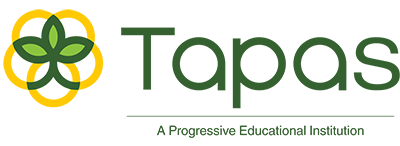
Defining the Core Values
ASTHITVA
Asthitva is an acronym that defines the core values that we follow at Tapas.
A – Accountability
Education has to become a collective responsibility, where the learner takes complete cognizance of his own actions and consequences.
S – Sustainability
Learners must be rooted in principles of sustainability that provide the right lens for viewing the future. This will seep into the curriculum, the learner’s home and in turn the learner’s habits for life. Sustainability will not just be a guiding value, it becomes a practice in terms of the environment around us and goes right into the roots of our inner strength & learning.
T – Teamwork and Collaboration
To recognise the strengths that others offer and to work together to help each other grow, becomes the crux of team work and collaboration.
H – Humanism and Humility
Humanism & Humility build a strong character and that is what we want our learners and teachers to follow and embody.
I – Inclusiveness and Diversity
To take pride in being unique, to accept differences and respect them, to understand the diversity of backgrounds, are lessons that are crucial for a better tomorrow.
T – Thought Leadership and Innovation
To question, to think beyond the box and to be innovative are essential qualities that our learners will be encouraged to practice
V – Veracity and Integrity
By practicing honesty and integrity, our learners will be encouraged to forge strong relationships that last a lifetime. They pave way for children to lead a fulfilling life with empathy and morals.
A – Adaptability
Change is the only constant, hence adaptability becomes a necessary trait to be practiced in daily life. It is the one game changer always, it makes us future-ready and lets us explore newer avenues with an open mind.
Pedagogical Direction
Disha
At Tapas, the curriculum becomes the compass for a child’s developmental journey, in this learning process, a multi-disciplinary approach emphasizing on social skills, emotional intelligence, life skills and more, which integrates subjects and makes learning seamless becomes pivotal.

S.T.E.A.M.
A Multi-disciplinary approach that ensures that children are not learning subjects in silos. Learning is holistic, interconnected and contextual.
Nature Based Education
Education at Tapas is weaved with various elements from nature. Nature Based Education not only brings the best out of the child, it helps children live and learn in simplicity while at school and build memories for a lifetime. It is these, intangible, priceless memories we all hold close to our hearts from our good old summer vacations at the grandparents’’ village. This form of education will be urbanized and blended with advancements so that children get to dip their feet in both the past and the future at the same time. Examples of activities at Tapas under this segment include urban farming, organic vegetable garden, nature appreciation, baking age-old recipes, feeding animals, caring for plants, etc.
Creative Arts
Children are multi-faceted, we tend to put blinkers on them in the name of focus, this often limits children and confines their creative space. Creative Arts are an integral part of any strong learning process. The human body needs input in various forms to grow developmentally and sensorially, this is taken care of when children are exposed to various forms of visual and performing arts, integrated into conceptual learning.
Debating
The study of vāda-vidhi will be most useful in trans-disciplinary and multi-disciplinary research work because today research in any one discipline is hardly sufficient. The voice of a child needs to be listened to and a platform must be provided for that. World forums become an easy stage for children who experience world class debates right in their backyard at school. Debating – Critical thinking, analysis and other higher order thinking skills are developed when student led forums and oratory clubs become second home on buzzing topics at school.
Life Skills and Vocational education
With all this blended in, what is life if the hands, heart and head do not work together? This is where Tapas inculcates young learners with practices that make them well-equipped and independent with activities of daily life, life Skills and vocational education. No amount of real-world experience teaches us enough for the future. At Tapas, we believe that the tender hands grow firm and strong with readiness right from programming apps all the way up to changing tires for cars. Emphasis on making the child self-sufficient is the basis with which we operate.
Leadership
Various life lessons emerge with scenario-based learning. We believe in creating world class simulated experiences that put children in a sandbox environment and learn what it Leadership means. Tapas will focus on scenario-based learning with powerful debrief capsules which instill conscious leadership and responsibility.

Philosophies and Philosophers
Tattva
We find that the parental dilemma has only increased over the years in terms of the “philosophy” parents want to follow in their educational decision for the child. Choosing a school would be the easiest thing to do, if the decision was purely based on tangibles like the property, infrastructure or financials. It is the intangible, priceless underlying philosophy of the school that makes this decision making process very brutally tough.
Tattva is a holistic model that allows parents to dabble and explore multiple philosophies that have proved to be successful across decades, across geographies and most importantly, across cultures.
Children will take to the environment they are exposed to and we all know that all roads don’t lead to Rome when it comes to education. Tattva is designed to go hand in hand with Disha (Pedagogical Direction) so that the parents, children and teachers feel connected with the doing and being of Tapas on a day to day basis.
Here is a snapshot of the blended learning approach Tapas has adopted across some major / time tested educational philosophies:
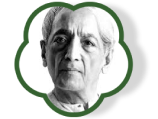 Teachings of J. Krishnamurthy
Teachings of J. Krishnamurthy
of ‘Self-Awareness
 Dr. Peter Gray’s
Dr. Peter Gray’s
philosophy of ‘Self-Directed Learning
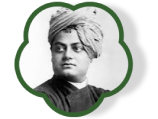 Swami Vivekananda’s
Swami Vivekananda’s
philosophy of ‘Spirit of Humanism in Education
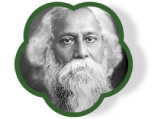 Rabindranath Tagore’s
Rabindranath Tagore’s
philosophy of Harmony and Nature Based Education
 John Dewey’s
John Dewey’s
philosophy of Instrumentalism and Inquiry Based Learning
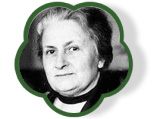 Maria Montessori’s
Maria Montessori’s
philosophy of Learning in real-life context, with real world materials
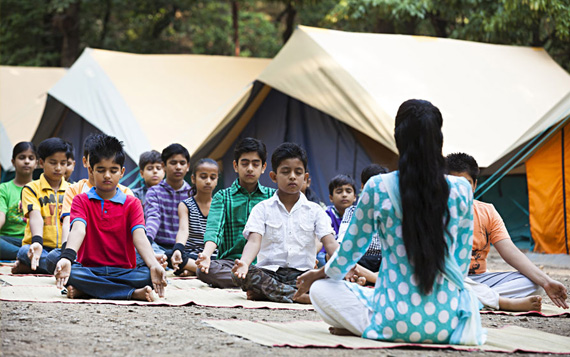
Gurukul System of Education helps the child in the realm of: Sustainability, improvement of character and Fundamental personality development, practical, skill-based education
The Curriculum Framework
Chakra
Tapas has established child centric learning as the top priority in the system. For systemic change to happen, one must visualize the axle as the child – the core of every decision taken at Tapas.
- Let us picture the axle and spokes (in a wheel) model where concentric circles define the Asthitva (core values) and the spokes define the Considerations for developing the curriculum.
- The interwoven wheel created will define the standards or the Tapas Chakra which will be the framework in which all curriculum is developed. Consider a webbing model or a mind map, for exploration of concepts. Now, interlace it with the core values and principles of child development. This gives you the Chakra.
- The interwoven wheel created will define the standards or the Tapas Chakra which will be the framework in which all curriculum is developed. Consider a webbing model or a mind map, for exploration of concepts. Now, interlace it with the core values and principles of child development. This gives you the Chakra.
- While the curriculum is developed, simultaneously, assessment standards are also developed. The assessments ensure that children are assessed for the understanding of a concept and not the memory of it. Tapas has enabled new forms of assessment and alternative credentialing that give the child, the parent and especially the teachers, the necessary insights for planning the future experiences for the child.
- Assessments are deep, meaningful and personal.


The School is a place with a heart!!
Prana
None of us remember our school days for the furniture we sat on or the basketball court we had – we remember the joy of sharing lunch, the nail-biting math class, the smell of pages, the splash of ink. That – is the prana. Tapas is committed to help children weave simplistic pleasurable memories during their immersive experience across years. How does this manifest in day to day life?
- Tapas for the child – my voice is heard, my mind is unraveled, I FEEL safe and happy, I am learning and developing myself in an environment that takes care of my social and emotional well-being with dignity and respect.
- Tapas for the workforce – my experiences change every year, I feel valued for my expertise, I get to learn as I teach, I do not feel stressed or judged, I feel safe emotionally and socially and I am treated with respect and love
- Tapas for the planet – my presence is respected, I am an integral priority, I feel the love from the community at Tapas, I AM BECOMING cleaner and greener
Tapas is a judgement free zone that bows to the light in every single person…. that bows to the light in YOU! Walk in now and feel life the Tapas way…
